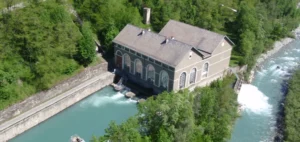Druk Green Power Corporation (DGPC), the state-controlled operator and developer of hydropower plants in Bhutan, invites sealed bidding by March 2 from eligible bidders to conduct a study topographic and cartographic studies for the Gongri Integrated Water Project and the Jerichhu Pumped Storage Project in eastern Bhutan.
Preparation of plans and engineering sections
The topographic and mapping study for the project shall focus on the preparation of engineering site plans and sections of the project area, according to a notice of tender published on the company’s website on February 14. Engineering site plans and sections should be prepared in sufficient detail to establish a solid foundation for project planning, engineering and design.
To achieve the above objectives, the contracting party will be required to complete a control point study, an engineering site plan study and a river study. The contracted work must be completed within 180 days (90 days for the Gongri project and 90 days for the Jerichhu Pumped Storage project) from the date of issuance of the award letter.
Projects planned in the Drangmechhu River basin
The projects are planned in the Drangmechhu River basin, the largest river system in Bhutan. The Gongri Storage Project is located on the Gongri River, one of the two main rivers in the basin, on the border of Trashigang and Mongar Dzongkhags (districts), four kilometers downstream from the confluence of the Gongri and Sherichhu Rivers. The main components of the project include the diversion tunnel with the power plant located approximately 900 meters downstream of the planned dam.
Jerichhu Water Project
A reconnaissance study conducted by the former Dagachhu Hydro Power Corporation (DHPS) in collaboration with the Japan International Cooperation Agency (JICA) found the Jerichhu pumped storage project, which would be the first in the country, technically viable. The open-loop pumped storage project, with a maximum capacity of 1800 MW, is designed with a flow connected to the upper reservoir and a wastewater tunnel connected to the lower dam that will be part of the Gongri Hydroelectric Power Project.






















